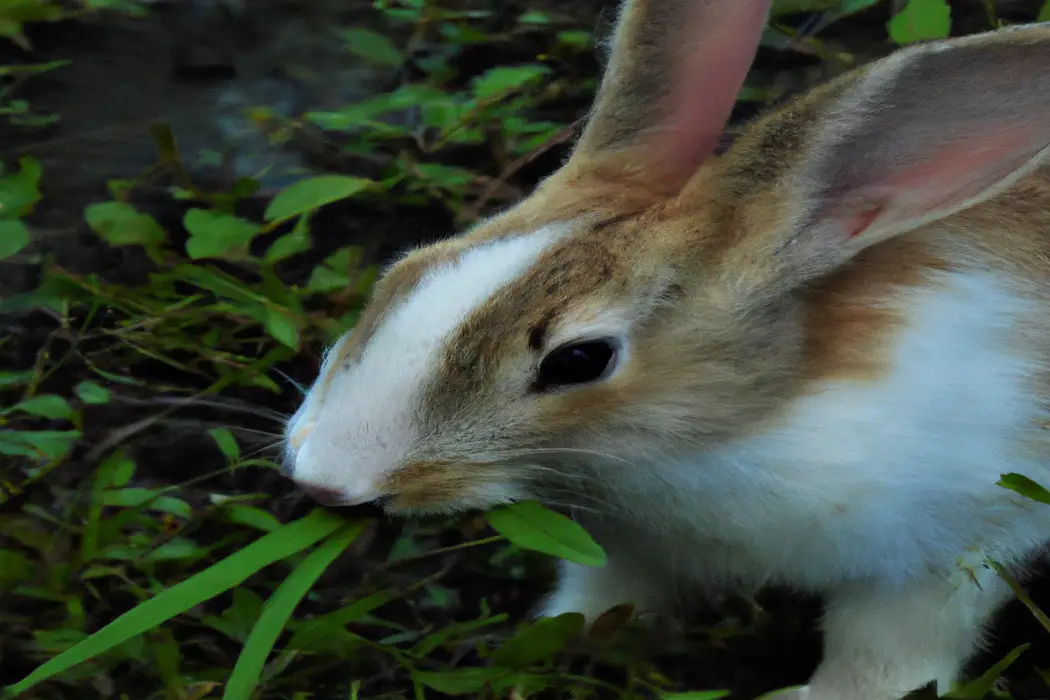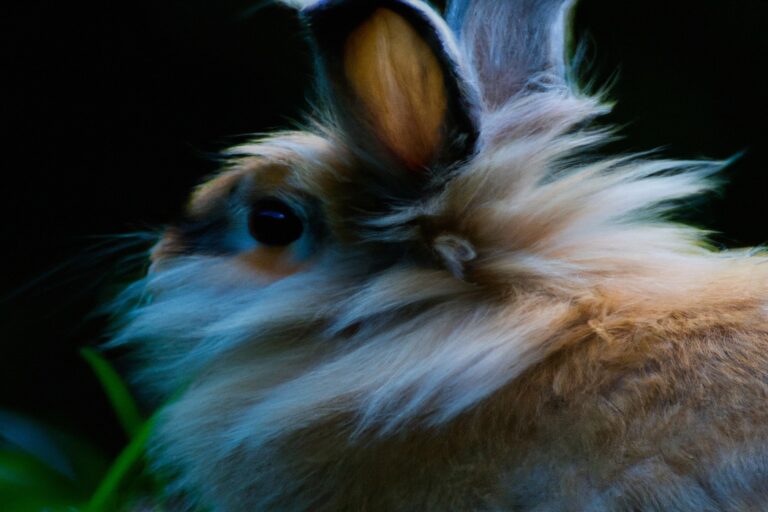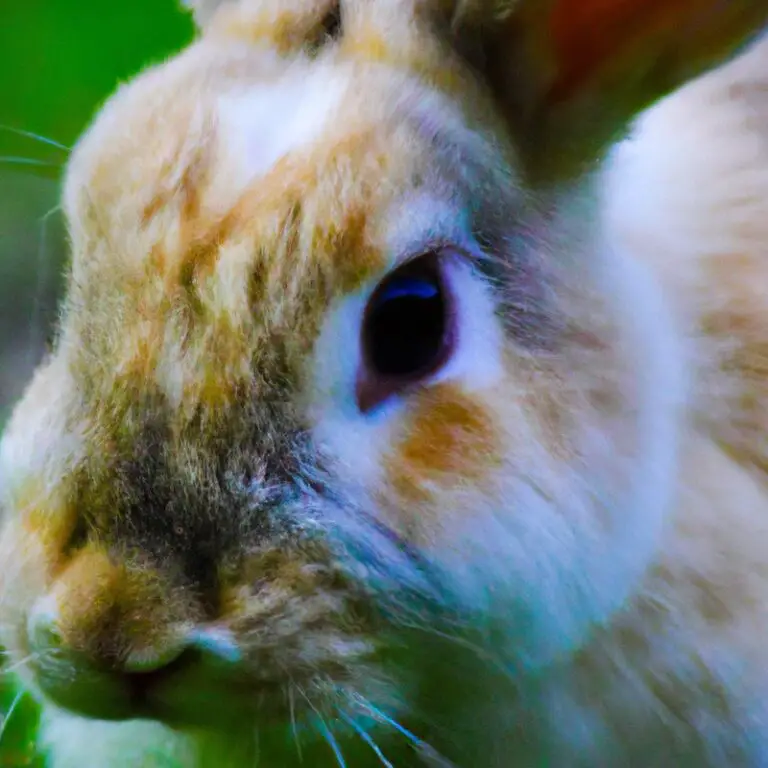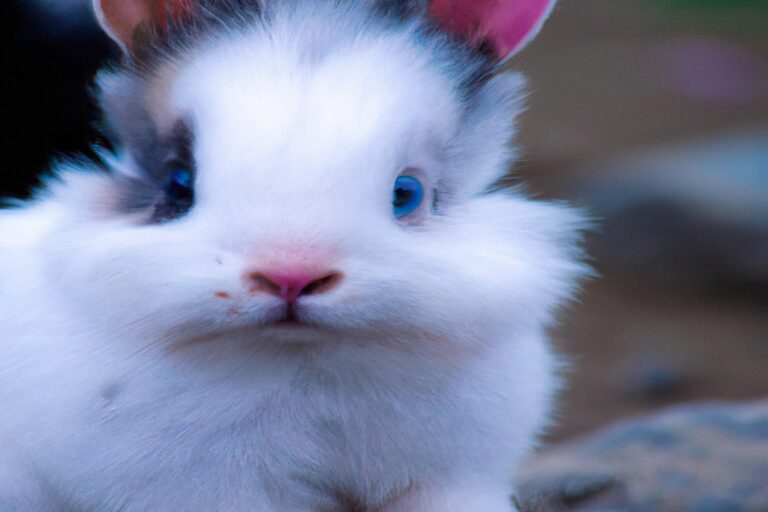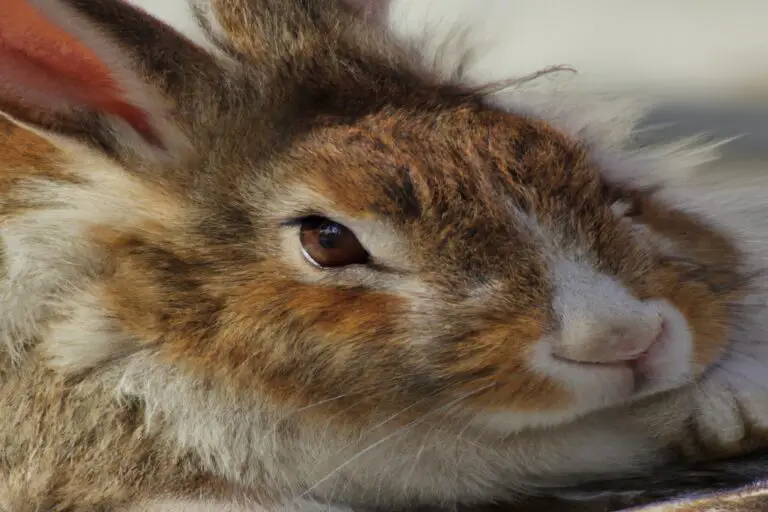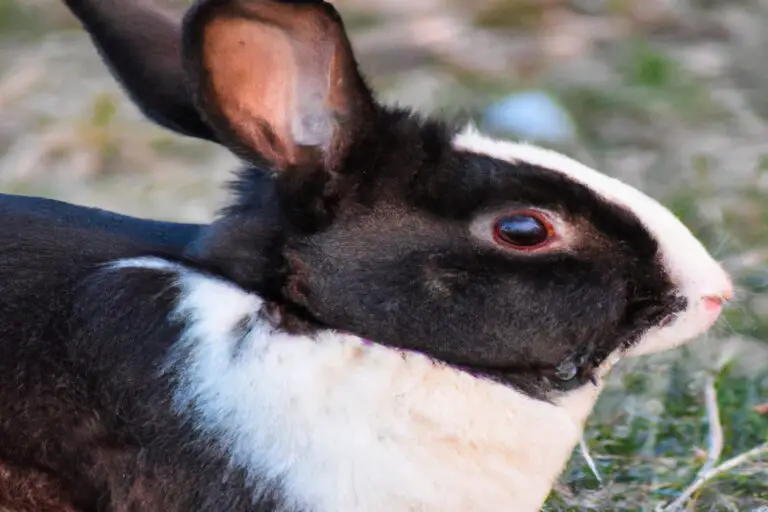How To Make Rabbits Gain Weight – The Ultimate Guide!
Key Takeaways:
- Provide a high-quality, balanced diet for optimum weight gain in rabbits.
- Offer unlimited access to fresh water to promote healthy weight gain.
- Incorporate appropriate exercise and mental stimulation to support a rabbit’s weight management.
- Consult with a veterinarian for personalized guidance and to rule out any underlying health issues affecting weight.
Are you a rabbit owner who is worried about your furry friend’s weight?
Whether you have a rabbit that is underweight or you simply want to help them bulk up a bit, you’ve come to the right place.
In this article, we will explore the importance of proper weight gain for rabbits and the factors that can affect their weight.
We will also delve into creating a balanced diet, providing tips for helping rabbits gain weight, and maintaining a healthy environment.
Plus, we’ll discuss how to monitor weight gain progress.
By the end, you’ll have all the knowledge you need to ensure your rabbit is happy, healthy, and at their ideal weight.
Let’s get started!
| Factors | Impact on Rabbit Weight Gain |
| Diet | A balanced and nutritious diet rich in calories, protein, and fats can contribute to weight gain in rabbits. |
| Food Quantity | Providing rabbits with larger portions of food can help them consume more calories and gain weight. |
| Food Quality | Opt for high-quality pellets, hay, and fresh vegetables to ensure rabbits receive proper nutrition for weight gain. |
| Treats | Occasional treats such as small pieces of fruits or vegetables can be given, but avoid excess as it can lead to obesity. |
| Feeding Frequency | Increasing the number of feeding sessions per day can help provide more opportunities for calorie intake. |
| Water Availability | Ensuring rabbits have access to fresh water can aid digestion and overall health, contributing to weight gain. |
| Exercise | Reducing excessive exercise can help conserve calories for weight gain, but it’s important to maintain appropriate activity levels. |
| Veterinary Checkup | Regular veterinary checkups help identify any underlying health issues that may affect weight gain. Seek professional advice if needed. |
Understanding the Importance of Proper Weight Gain for Rabbits
Proper weight gain is crucial for the health and well-being of rabbits.
Why is Proper Weight Gain Important for Rabbits?
Proper weight gain is important for rabbits because it indicates good overall health and well-being. Maintaining a healthy weight helps ensure that rabbits are getting the necessary nutrients and energy to support their growth, development, and daily activities.
It also helps prevent various health issues that can arise from being underweight or overweight, such as digestive problems, weakened immune system, and reduced fertility.
Monitoring their weight and providing a balanced diet can help keep rabbits happy and thriving.
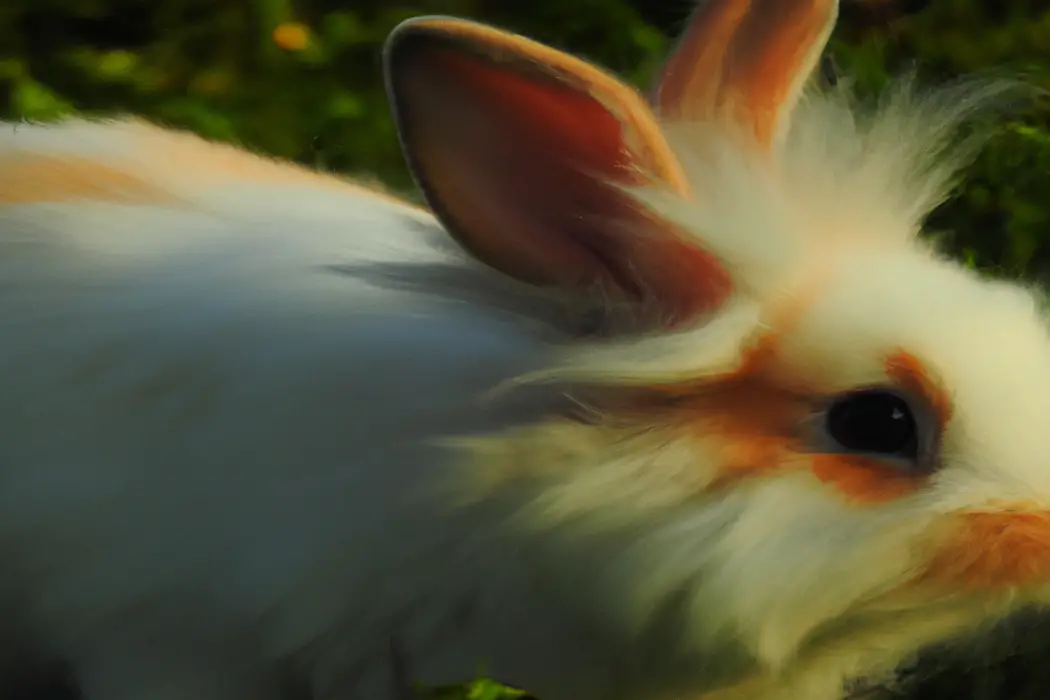
Factors That Can Affect a Rabbit’s Weight
There are several factors that can affect a rabbit’s weight. Diet plays a key role – feeding them a balanced diet with the right amount of hay, vegetables, and pellets can help them maintain a healthy weight.
Exercise is important too – giving your rabbit plenty of space to run and play can prevent weight gain.
Health issues such as dental problems or parasites can also impact their weight. Regular check-ups with a veterinarian can help ensure any underlying issues are addressed.
Finally, stress and anxiety can cause weight loss in rabbits, so creating a calm and comfortable environment for them is essential.
Identifying Underweight Rabbits
To identify underweight rabbits, look for noticeable signs such as protruding bones, a visibly sunken abdomen, and a lack of muscle definition.
Signs of Underweight Rabbits
Underweight rabbits may display several signs. One common sign is visible ribs or spine, indicating a lack of body fat.
Additionally, you may notice a decrease in energy levels and activity.
The rabbit may appear lethargic or have less interest in their surroundings. Another sign can be a diminished appetite or weight loss despite regular feeding.
If you observe these signs, it’s important to consult with a veterinarian to determine the underlying cause and develop a plan to help your rabbit gain weight.
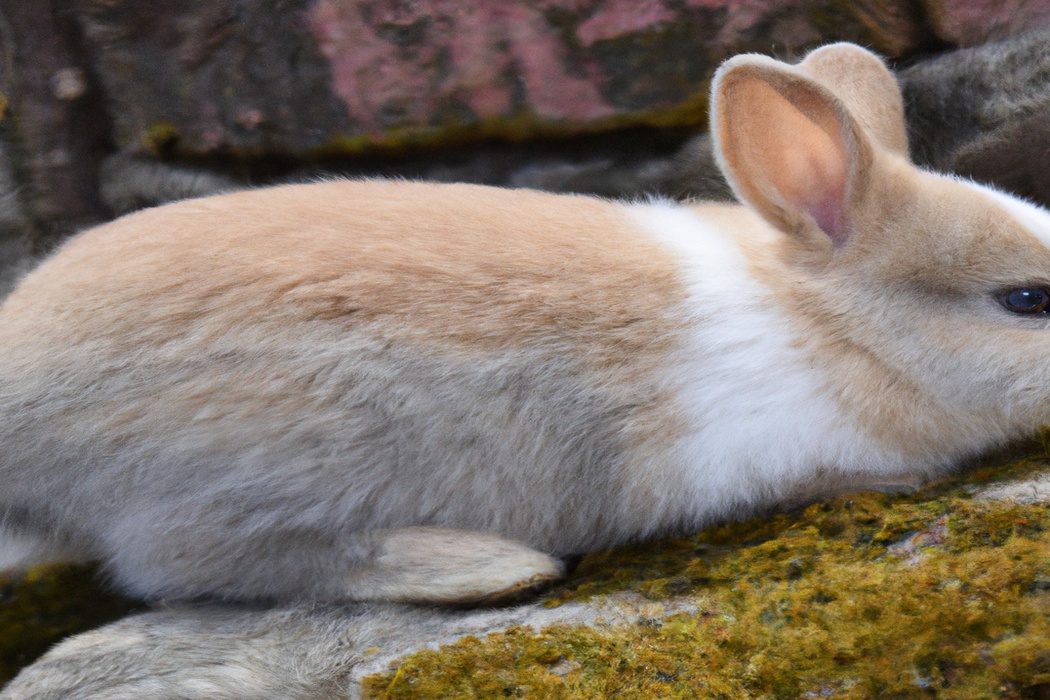
What to Do If Your Rabbit is Underweight
If your rabbit is underweight, there are a few things you can do to help them gain weight.
- Evaluate their diet: Ensure your rabbit is getting a balanced and nutritious diet. Consult a veterinarian for guidance on appropriate food options.
- Increase portion size: If your rabbit is not eating enough, gradually increase the portion size to encourage them to eat more.
- Offer tasty treats: Introduce high-calorie treats like fresh fruits and vegetables to entice your rabbit to eat more.
- Provide constant access to fresh water: Hydration is important for weight gain, so make sure your rabbit always has fresh water available.
- Monitor their health: Regularly check for any signs of illness or dental problems that may be affecting their appetite or weight.
Remember, it’s always a good idea to consult a veterinarian for personalized advice and guidance on helping your underweight rabbit.
Creating a Balanced Diet for Rabbits
To create a balanced diet for rabbits, focus on providing the right combination of essential nutrients for their overall health and well-being.
The Importance of a Well-Balanced Rabbit Diet
A well-balanced rabbit diet is vital for the overall health and well-being of your furry friend.
It provides the necessary nutrients for their growth, development, and maintenance.
A balanced diet includes high-quality hay, fresh vegetables, and pellets specifically formulated for rabbits.
Hay is essential for their dental health and digestive system.
Fresh vegetables provide vitamins and minerals, while pellets ensure they get a complete and balanced diet.
Regular monitoring of their diet and adjusting it as needed is important to ensure their nutritional needs are met.
Essential Nutrients for Weight Gain in Rabbits
To help rabbits gain weight, it’s important to provide them with a balanced diet that includes essential nutrients.
Here are some key nutrients that can support weight gain in rabbits:
- Protein: Including high-quality protein sources like hay, pellets, and fresh vegetables can help rabbits build muscle mass and gain weight.
- Fiber: Filling your rabbit’s diet with fiber-rich foods like hay and leafy greens can promote healthy digestion and weight gain.
- Fat: Adding small amounts of healthy fats, such as flaxseed or vegetable oil, to your rabbit’s diet can increase calorie intake and support weight gain.
- Carbohydrates: Including carbohydrates in the form of grains or starchy vegetables can provide additional energy for rabbits to put on weight.
Remember, it’s important to consult with a veterinarian to determine the specific dietary needs of your rabbit and ensure a healthy and gradual weight gain.
Recommended Foods for Weight Gain in Rabbits
If you’re looking to help your rabbit gain weight, there are several recommended foods you can incorporate into their diet. These foods are not only nutritious but can also help promote weight gain in rabbits:
- High-quality alfalfa hay: This hay is higher in calories and protein compared to other types of hay, making it a good choice for weight gain.
- Pellets with a high fiber and fat content: Look for pellets formulated specifically for weight gain, as they may contain more calories and fat.
- Fresh vegetables: Incorporate a variety of vegetables into your rabbit’s diet, such as carrots, kale, and spinach. These can provide additional nutrients and help increase caloric intake.
- Healthy treats: Offer small amounts of healthy treats, like fresh fruits or a small piece of banana, as an occasional treat to entice your rabbit to eat more.
Remember, it’s important to consult with a veterinarian before making any significant dietary changes for your rabbit. They can provide personalized advice based on your rabbit’s specific needs and health conditions.
Tips for Helping Rabbits Gain Weight
Help your rabbits gain weight by providing unlimited access to fresh hay, incorporating high-quality pellets into their diet, and offering nutritious treats and supplements.
Providing Unlimited Access to Fresh Hay
To help your rabbits gain weight, make sure they have unlimited access to fresh hay. Hay is an essential part of their diet and provides necessary fiber.
Place hay racks or piles in their enclosure, making sure it’s clean and fresh.
This way, your rabbits can nibble on it throughout the day, keeping their digestive system healthy and helping them gain weight. Remember to always provide fresh hay to keep your rabbits happy and healthy.
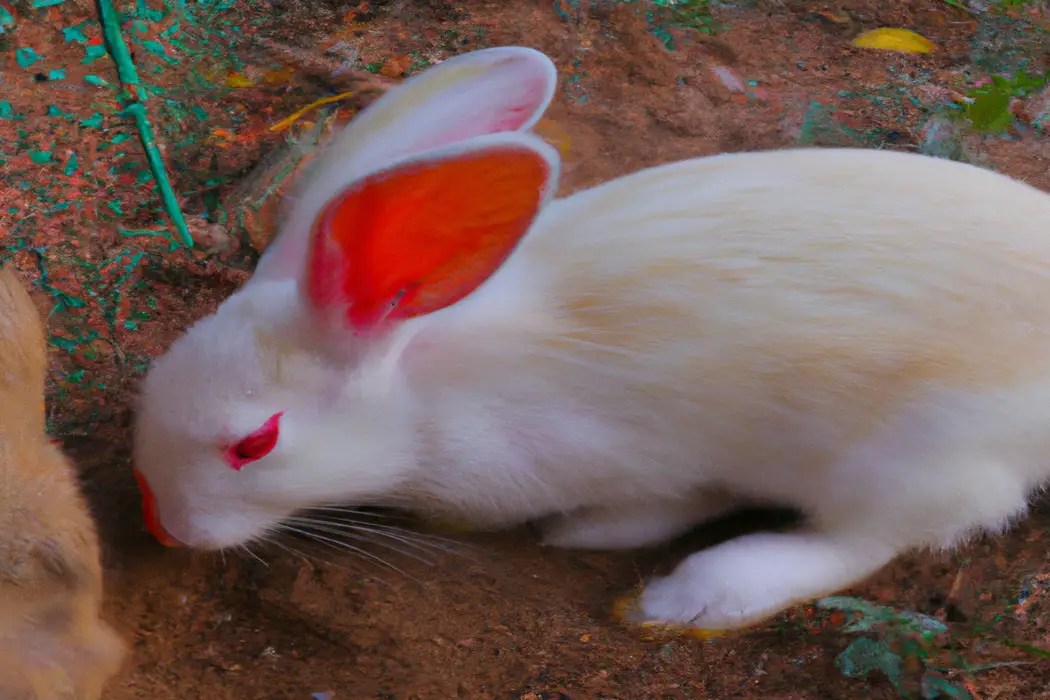
Incorporating High-Quality Pellets into the Diet
If you want to help your rabbit gain weight, incorporating high-quality pellets into their diet is important. Look for pellets that are specifically formulated for rabbits and are made with natural and nutritious ingredients.
These pellets should be high in fiber and low in fat.
It’s also important to check that they don’t contain any artificial additives or preservatives. Gradually introduce the pellets into your rabbit’s diet, alongside their hay and fresh vegetables.
Remember to monitor their weight and adjust the portion sizes accordingly.
Offering Nutritious Treats and Supplements
To help your rabbit gain weight, offering nutritious treats and supplements can be beneficial.
Consider including high-fiber treats like Timothy hay-based biscuits or fresh vegetables such as carrots and dark leafy greens.
Additionally, you can provide supplements like probiotics or vitamin/mineral powders that are specifically formulated for rabbits.
However, it’s important to consult with a veterinarian before introducing any new treats or supplements to ensure they are safe and appropriate for your rabbit’s individual needs.
Maintaining a Healthy Environment for Weight Gain
To help your rabbits gain weight, maintaining a healthy environment is key.
This involves providing adequate space for exercise, ensuring proper hygiene and cleanliness, and managing stress and anxiety.
Providing Adequate Space for Exercise
To ensure your rabbits can exercise and maintain a healthy weight, it’s important to provide them with adequate space.
Make sure they have a spacious enclosure or hutch, where they can hop around and stretch their legs.
A larger area will allow for more movement and physical activity.
You can also consider adding items like tunnels or toys to encourage play and exercise.
Just remember to regularly clean and maintain the space to keep it safe and hygienic for your furry friends.
Ensuring Proper Hygiene and Cleanliness
To ensure proper hygiene and cleanliness for your rabbits, there are a few important steps to follow.
First, regularly clean their living area, including removing waste and replacing soiled bedding.
Second, provide fresh and clean water daily.
Third, monitor their food to prevent contamination or spoilage.
Additionally, wash your hands before and after handling your rabbits to prevent the spread of germs.
Regular grooming also helps maintain cleanliness.
By implementing these practices, you can create a healthy environment for your rabbits to thrive.
Managing Stress and Anxiety
Managing stress and anxiety is important for maintaining overall health and well-being.
Here are a few tips to help you cope:
- Practice deep breathing exercises to calm your mind and body.
- Engage in regular physical activity, such as walking or yoga, to release tension.
- Find healthy ways to relax, like reading a book or listening to soothing music.
- Connect with loved ones and seek support from friends or family.
- Limit your exposure to stressful situations and learn to say no when necessary.
- Consider trying relaxation techniques, such as meditation or mindfulness.
- Prioritize self-care and make time for activities you enjoy.
Remember, taking care of your mental health is just as important as taking care of your physical health.
Monitoring Weight Gain Progress
One way to monitor your rabbit’s weight gain progress is by regularly weighing them.
Additionally, consulting a veterinarian for professional advice can also help you keep track of their progress.
Regularly Weighing Your Rabbit
Regularly weighing your rabbit is an important part of monitoring their health and weight gain progress. By tracking their weight over time, you can ensure they are maintaining a healthy body condition.
Weighing your rabbit can help you identify any sudden weight loss or gain, which could be a sign of underlying health issues.
To weigh your rabbit, use a small pet scale or a kitchen scale. Place them gently on the scale and record their weight.
Aim to weigh your rabbit at least once a month, or more frequently if advised by your veterinarian.
Consulting a Veterinarian for Professional Advice
If you’re concerned about your rabbit’s weight and want professional advice, consulting a veterinarian is your best course of action.
A veterinarian specializes in animal health and can provide expert advice specific to your rabbit’s needs.
They can assess your rabbit’s overall health, conduct any necessary tests, and create a tailored plan to help your rabbit gain weight in a safe and effective manner.
Don’t hesitate to reach out to a veterinarian who can guide you through this process and provide the best care for your rabbit.
Frequently Asked Questions
What can cause weight loss in rabbits?
Weight loss in rabbits can be caused by several factors.
Some possible causes include:
- Poor diet: A lack of proper nutrition, such as insufficient hay or vegetables, can lead to weight loss in rabbits.
- Dental issues: Rabbits with dental problems may struggle to eat, resulting in weight loss.
- Gastrointestinal issues: Conditions like diarrhea or intestinal parasites can interfere with a rabbit’s ability to absorb nutrients, causing weight loss.
- Stress or anxiety: Changes in a rabbit’s environment or excessive stress can lead to decreased appetite and weight loss.
- Illness or disease: Various illnesses, such as kidney disease or liver disease, can impact a rabbit’s weight and overall health.
- Overgrown nails: If a rabbit’s nails are too long, it can make movement and eating difficult, leading to weight loss.
If you notice your rabbit losing weight, it’s important to consult a veterinarian to determine the underlying cause and address any health concerns.
How long does it take for rabbits to gain weight?
Rabbits typically take around 6-8 weeks to gain noticeable weight. However, the rate at which they gain weight can vary depending on factors such as their age, breed, health, diet, and activity level.
It’s important to provide rabbits with a balanced diet that includes high-quality pellets, fresh hay, and a variety of vegetables.
Regular monitoring of their weight and consulting with a veterinarian can help ensure their healthy growth.
Can overweight rabbits be at risk of health issues?
Yes, overweight rabbits can be at risk of health issues.
Just like with humans, carrying extra pounds can put a strain on their bodies.
It can lead to conditions such as arthritis, heart disease, and respiratory problems.
Overweight rabbits may also have difficulty grooming themselves properly, which can result in skin issues.
Additionally, obesity can increase the risk of developing diabetes in rabbits.
Therefore, maintaining a healthy weight for your furry friend is essential to their overall well-being.
Final Verdict
Proper weight gain is crucial for the overall health and well-being of rabbits. Understanding the importance of maintaining a healthy weight for rabbits is essential in preventing various health issues.
Identifying underweight rabbits and taking appropriate action is necessary to help them gain weight.
Creating a balanced diet that includes essential nutrients and recommended foods for weight gain is key. Additionally, implementing tips such as providing unlimited access to fresh hay, incorporating high-quality pellets, and offering nutritious treats and supplements can aid in weight gain.
Maintaining a healthy environment is important, including providing adequate space for exercise, ensuring proper hygiene, and managing stress and anxiety.
Regularly monitoring weight gain progress and consulting a veterinarian for professional advice is highly recommended. In the end, it is crucial to prioritize the health and well-being of rabbits by taking proactive measures to ensure they reach and maintain a healthy weight.

